Sign up. Be inspired. Get clicking.
How new hydrogen engine technologies are set to transform the automotive industry
1 February 2023
Did you know that next-generation hydrogen engines could arrive as early as 2025? Hyundai and Kia are leading the charge with these engines, which promise to change the landscape of environmentally conscious transport. With a 3.5-litre displacement and 30.6 kg·m torque, these engines are set to establish new standards for alternative fuel vehicles.
Hydrogen combustion engines are poised to transform environmentally conscious transport. They operate similarly to traditional engines but are far cleaner. By burning hydrogen, they aim to deliver a comparable driving experience and quick refuelling, all while emitting only water vapour.
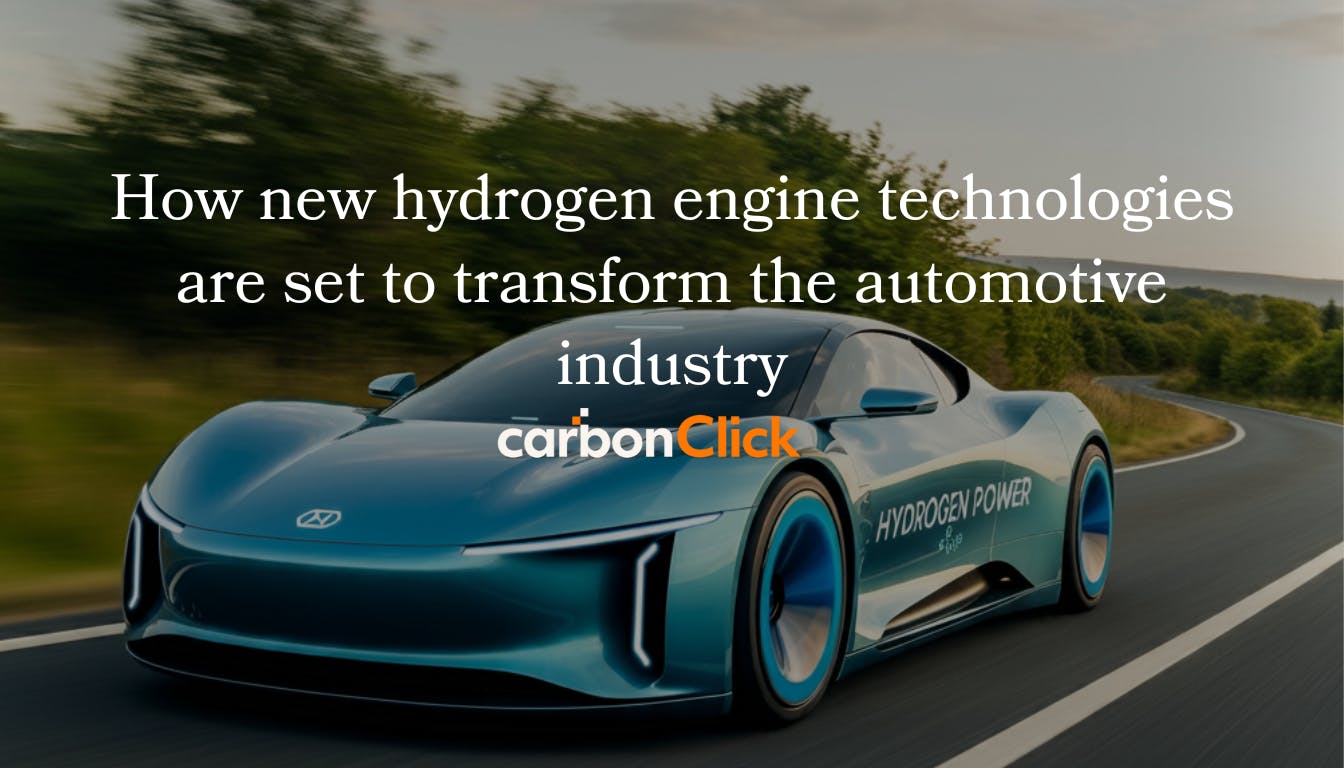
How new hydrogen engine technologies are set to transform the automotive industry
Hyundai and Kia are at the forefront of this innovation. They are collaborating on engines that meet stringent Euro 6d emissions standards. These engines are not just focused on performance; they represent a significant step towards a future with zero emissions.
Volvo is also making significant strides, with plans to test hydrogen engines in trucks by 2026. They anticipate that these engines will match diesel trucks in performance and reliability while significantly reducing CO2 emissions.
Key Takeaways
- Hyundai and Kia aim to launch hydrogen combustion engines by 2025, advancing alternative fuel vehicles.
- The engines are designed to meet Euro 6d emissions standards, emitting only water vapour.
- Volvo plans to test hydrogen combustion trucks by 2026, ensuring high performance and reliability.
- Hydrogen combustion engines could be classified as "zero emission vehicles" in the EU.
- These engines offer the familiar benefits of traditional combustion engines without harmful emissions.
- Advanced technologies optimising hydrogen combustion are set to redefine environmentally conscious transport.
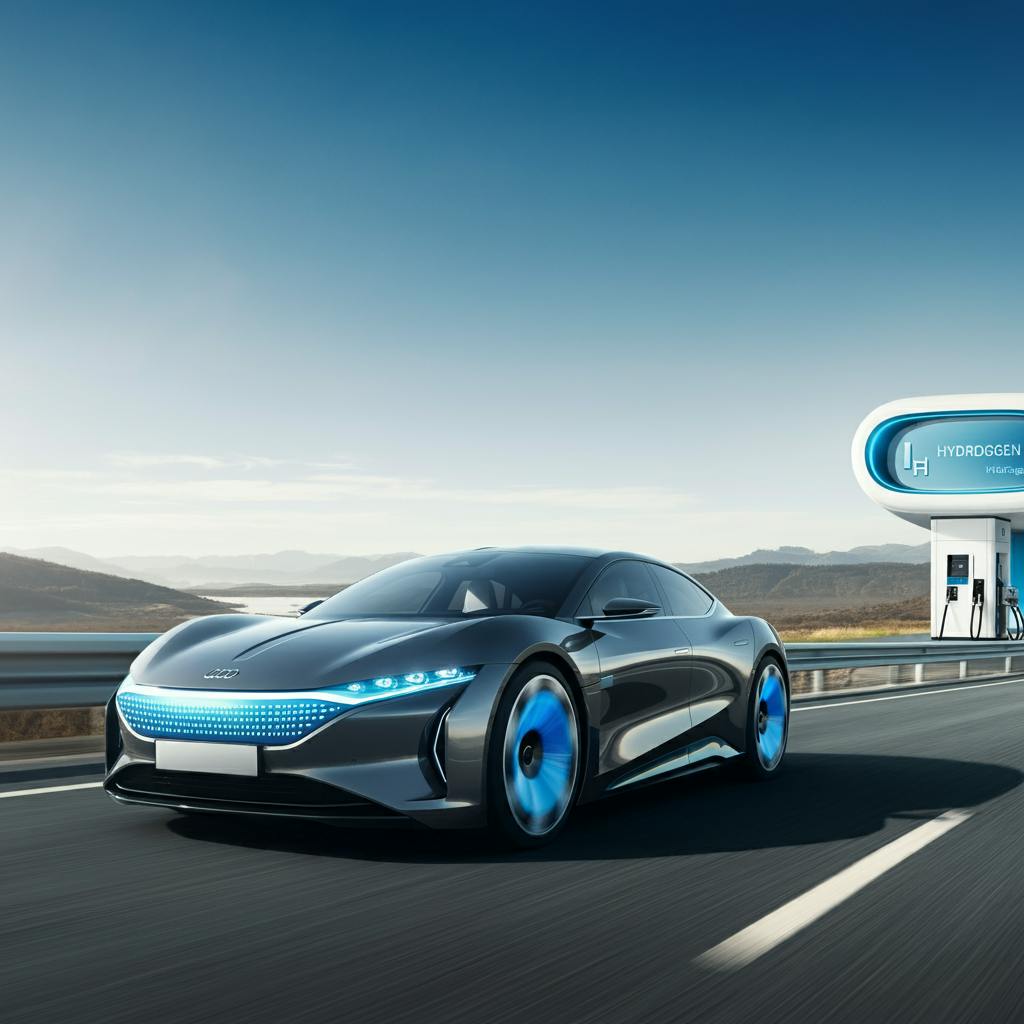
The rise of Hydrogen combustion Engines
Hydrogen combustion engines are emerging as a significant force in automotive innovation. They bridge the gap between traditional fossil fuels and new hydrogen fuel cells, utilising existing infrastructure while significantly reducing emissions.
Why Hydrogen Combustion?
Hydrogen combustion engines are valuable because they effectively utilise alternative fuel sources. When hydrogen combusts with oxygen, it produces water, thereby substantially reducing carbon emissions. These engines also refuel in a manner similar to petrol engines, making them convenient for those accustomed to quick refuelling.
Comparison to Traditional Combustion Engines
Hydrogen combustion engines perform comparably to traditional ones, providing a similar driving experience. They support sustainable mobility, and although they are not yet as efficient, ongoing advancements aim to close this gap.
Key Players in the Market
Major automotive manufacturers like Hyundai, Kia, and Volvo are leading in this area of innovation. They are heavily investing in hydrogen combustion technology. Hyundai and Kia are collaborating to refine this technology for both cars and trucks, while Volvo is exploring hydrogen for their trucks to meet stringent emission standards.
Hydrogen Combustion vs. Hydrogen Fuel Cell
Exploring new hydrogen technology is essential to understanding the difference between hydrogen combustion engines and fuel cell electric vehicles (FCEVs). Both represent innovative approaches to clean energy solutions, yet they operate in fundamentally different ways.
Understanding the Difference
The primary distinction lies in how they convert energy into power. Hydrogen combustion engines function similarly to traditional engines, burning hydrogen to produce mechanical power. Companies like Toyota and Yamaha have invested significantly in this area, developing a hydrogen-powered version of the Lexus V8 engine.
Conversely, fuel cells convert hydrogen into electricity, which then powers an electric motor. Vehicles like the Toyota Mirai and Honda Clarity exemplify the effectiveness of this technology. Fuel cell systems achieve over 60% efficiency, surpassing the 40-45% efficiency typically associated with hydrogen combustion engines.
Space and Efficiency Considerations
When comparing these technologies, space and efficiency are crucial factors. Hydrogen combustion engines require less space, which is advantageous for vehicle design. However, fuel cell systems demand more space due to their additional components.
This influences both vehicle construction and performance. Nevertheless, fuel cell electric vehicles are significantly more efficient, offering substantial benefits in terms of emissions reduction. As such, they play a pivotal role in the future of hydrogen technology.
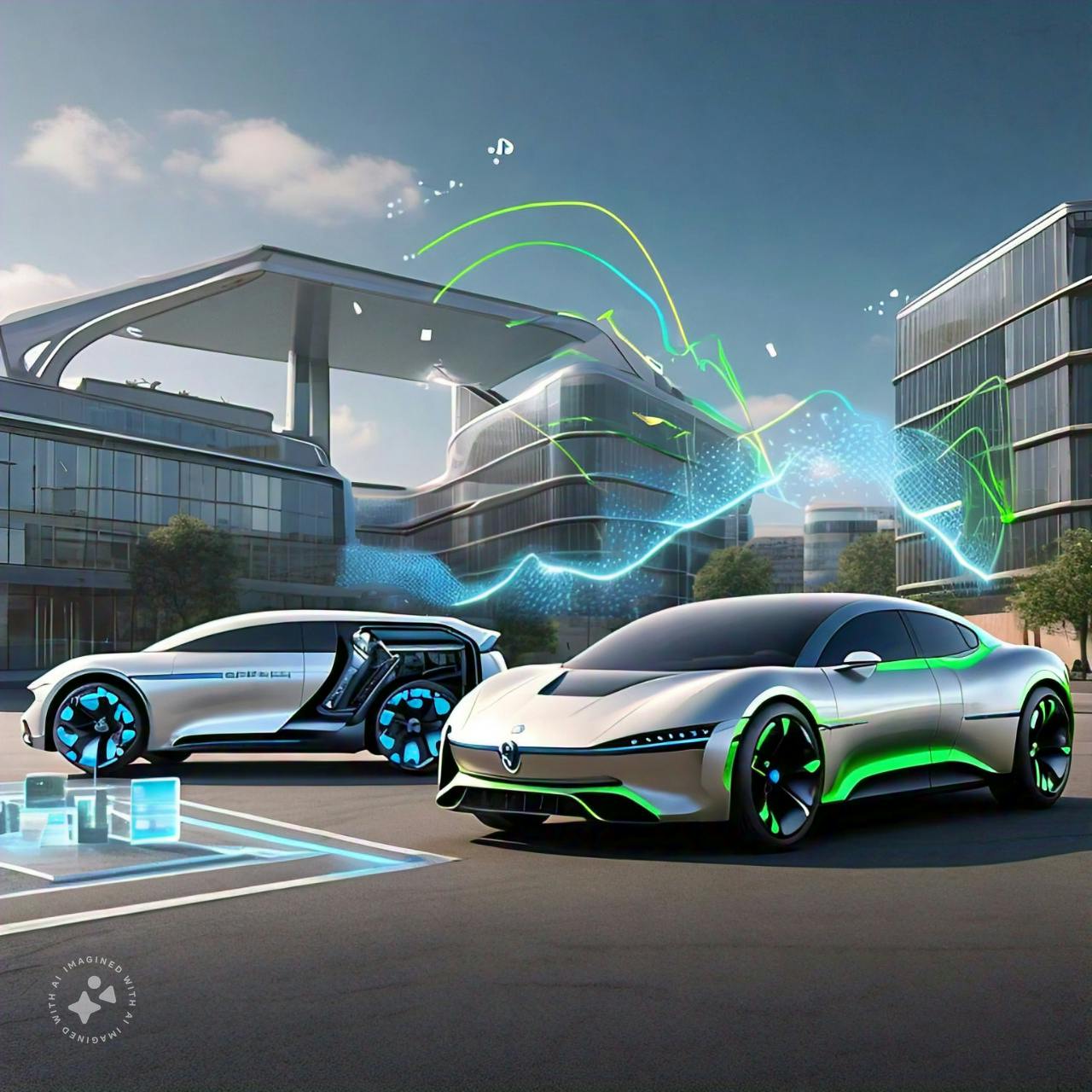
Kia and Hyundai’s Joint Venture
Kia and Hyundai have made significant strides in the automotive industry by collaborating with Next Hydrogen Corporation, a Canadian firm, to develop an advanced alkaline water electrolysis system. This system is crucial for producing hydrogen through a cost-effective method known as alkaline technology.
Hyundai and Kia aim to reduce expenses by enhancing stack technologies, which could lower the cost of producing hydrogen. They are leveraging their expertise in manufacturing components such as electrodes and bipolar plates to build a more efficient stack.
This partnership marks an important advancement towards the use of alkaline water electrolysis for hydrogen production. Hydrogen, produced from water and renewable energy, is a zero-carbon fuel that has the potential to revolutionise energy use in industries and transport.
Hyundai Motor Group has introduced 'HTWO' to focus on the development of the next-generation hydrogen fuel cell system, which will be applicable in various sectors, including automobiles, aviation, and railways. This initiative underscores Hyundai and Kia's long-term dedication to hydrogen technology.
They are collaborating with prominent companies like W. L. Gore & Associates, known for its expertise in fuel cell technology. Together, they are working to enhance PEM technology for electric vehicles. Gore's knowledge in PEM and related technologies will contribute to the improvement of fuel cells.
Hyundai and Kia have also developed a new hydrogen engine with over 50% efficiency, capable of generating substantial power while emitting minimal pollutants. They plan to implement this engine in cars, trucks, and vans by 2027.
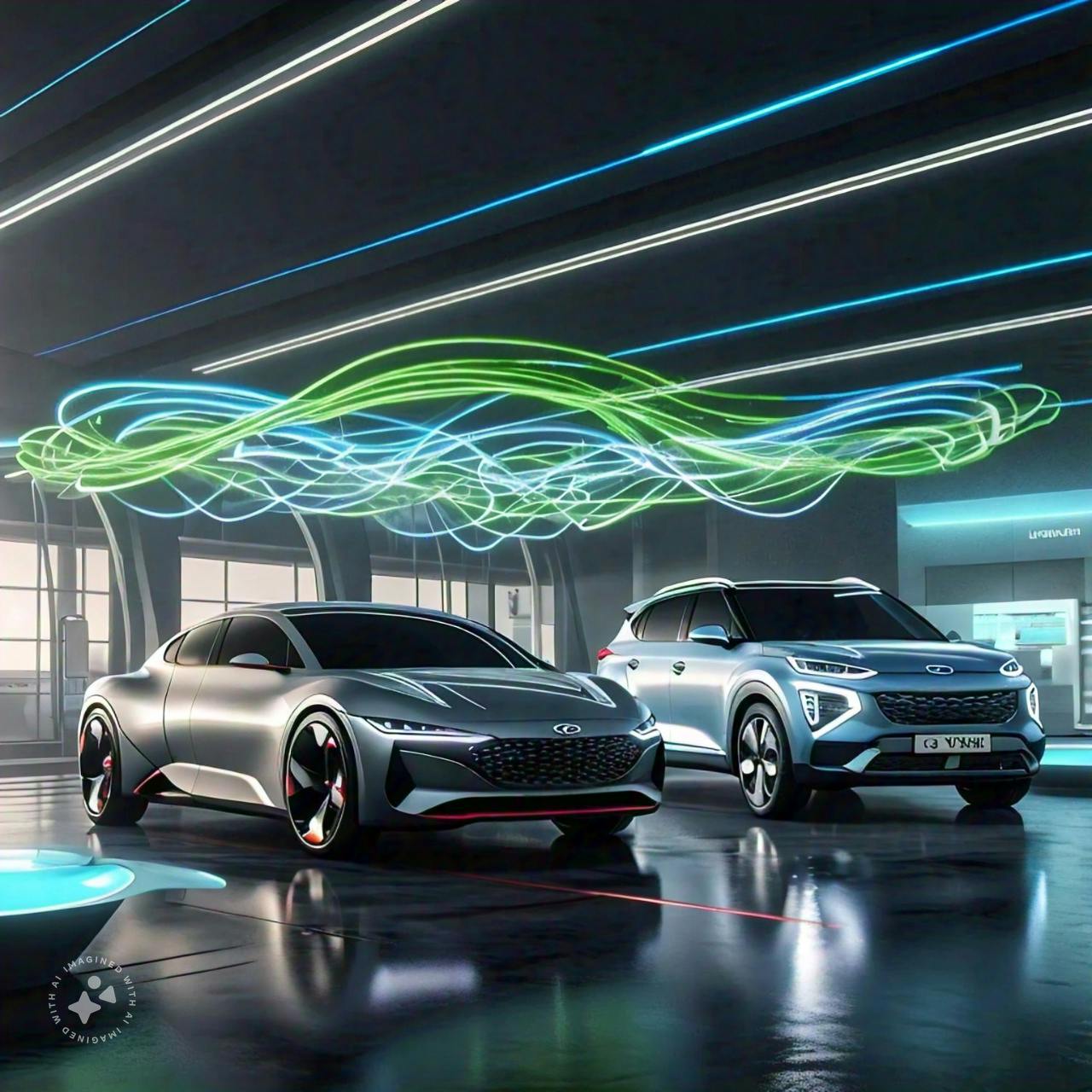
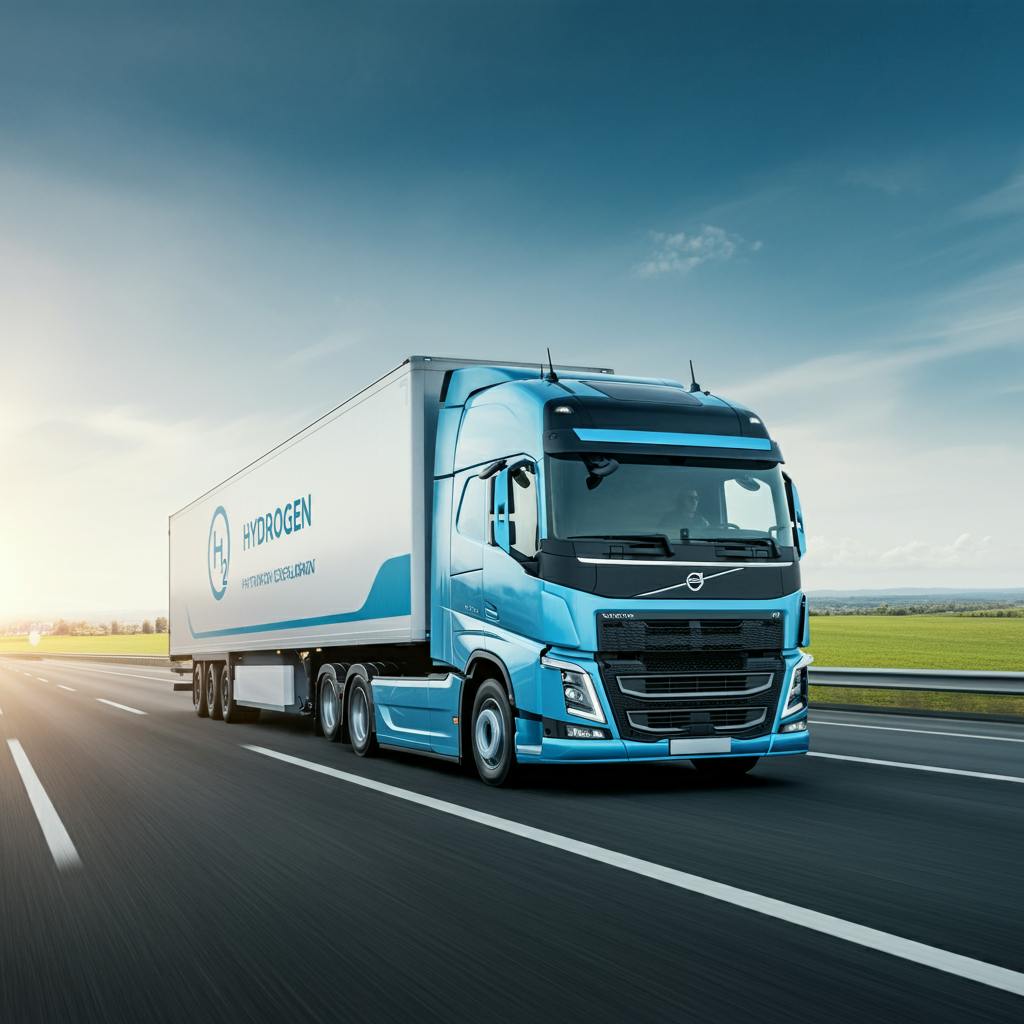
Volvo’s Plans for Hydrogen Trucks
Volvo Trucks is leading the way towards cleaner transport with hydrogen-powered commercial vehicles. These new models will join their electric and renewable fuel trucks, setting new standards for performance and reliability.
Performance and Reliability Metrics The hydrogen trucks aim to match diesel trucks in performance, with a range of up to 1,000 km. They are equipped with fuel cells producing 300 kW of power, enabling them to haul heavy loads, making them crucial for heavy transport.
A detailed press release from Volvo explains their use of High-Pressure Direct Injection (HPDI) technology. This technology enhances energy efficiency and reduces fuel consumption.
Real-life Testing Timelines On-road tests for these engines will commence in 2026. Volvo Group and Westport Fuel Systems aim to have HPDI technology ready by mid-2024, with plans to introduce fuel cell electric trucks to customers by the end of the decade.
Environmental Impact and Emissions Volvo's hydrogen trucks are expected to meet stringent EU CO2 standards, qualifying them as "Zero Emission Vehicles." They will emit significantly lower levels of nitrogen oxides and particulate matter, setting a new benchmark for clean heavy-duty trucks.
The widespread adoption of these technologies relies on the availability of hydrogen and refuelling infrastructure, which are essential for reducing CO2 emissions and protecting the environment.
The role of Biodiesel in Hydrogen Combustion
Biodiesel plays a crucial role in hydrogen combustion, serving as a starter fuel. This combination assists Volvo in developing hydrogen engines that comply with stringent pollution regulations.
Cost-Effectiveness of Renewable Diesel
Renewable diesel and biodiesel are more cost-effective than transitioning to Battery Electric Vehicles (BEVs). Shifting to renewable diesel incurs significantly lower expenses compared to adopting BEVs when considering vehicle and infrastructure costs.
The United States currently operates 16 renewable diesel plants, with Illinois alone hosting 477 stations for renewable diesel and biodiesel. This supports the increased use of biodiesel and the development of alternative combustion methods.
Blending Biodiesel with Hydrogen: Pros & Cons
Studies reveal both benefits and drawbacks of blending biodiesel with hydrogen. For instance, mixtures like B10 or B20 with hydrogen reduce engine performance and increase CO2 and NOx emissions. However, they decrease CO emissions. Introducing hydrogen also enhances engine efficiency but raises combustion temperatures, leading to higher nitrogen oxide emissions.
Environmental Benefits and Technological Progress
Using biodiesel in hydrogen combustion has environmental advantages. Fleets switching to Compressed Natural Gas (CNG) and Renewable Natural Gas (RNG) can avoid additional costs, encouraging the transition to alternative combustion techniques.
An experiment using an air-cooled engine examined the combined use of biodiesel and hydrogen, focusing on emissions and engine performance. The results demonstrated the potential of biodiesel and hydrogen working in tandem to achieve progress in hydrogen engine innovation.
Reducing Emissions with Hydrogen and Biodiesel
Adding hydrogen to biodiesel in engines reduces carbon and soot emissions, offering a viable alternative to traditional diesel engines. This approach represents a significant advancement towards cleaner transport solutions.

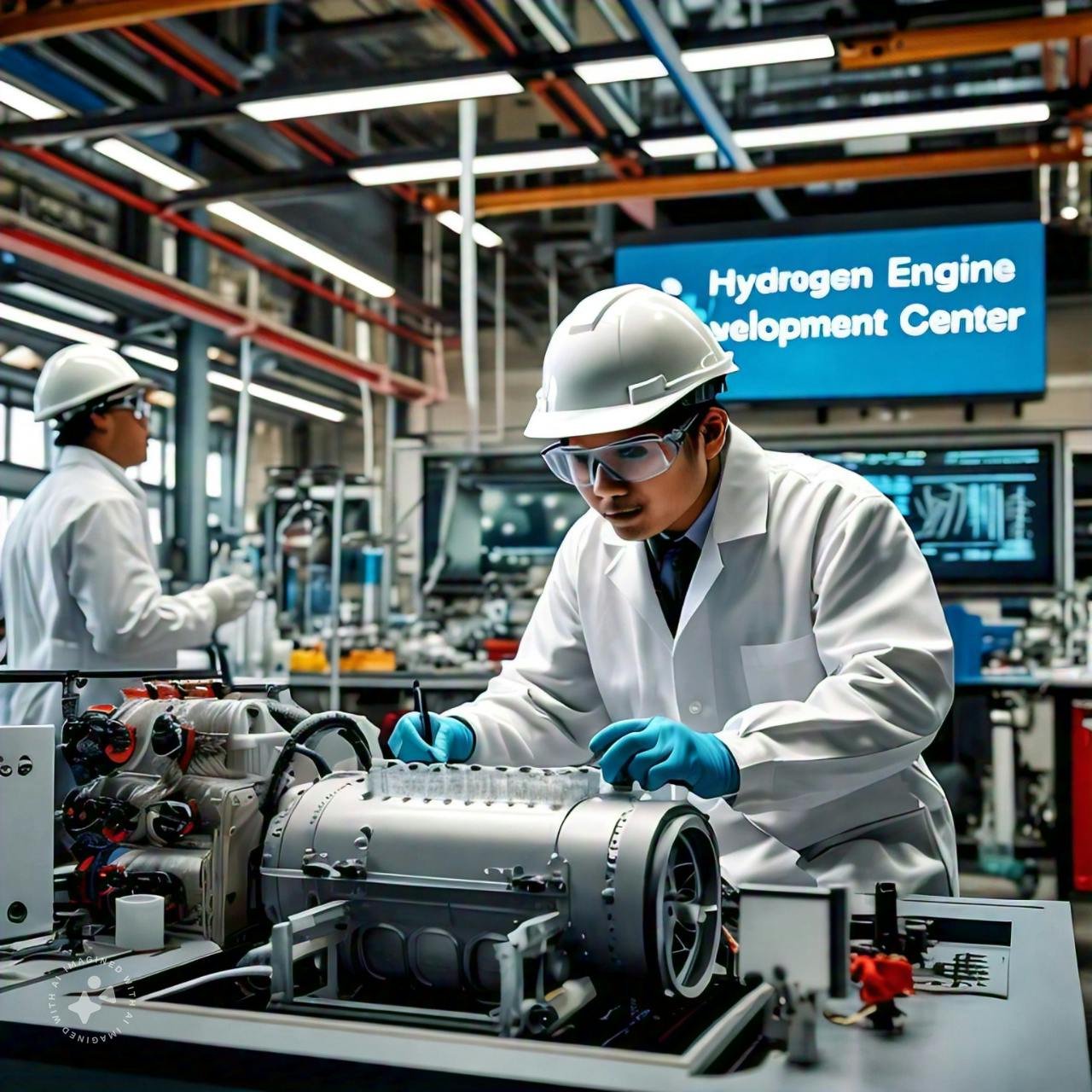
Predictions for Market Growth
The hydrogen engine market is set to grow rapidly, thanks to several factors. These include significant advances in technology and increased investment by companies in clean energy.
Europe's Leading Role
Europe is at the forefront of adopting hydrogen engines, due to its strong commitment to sustainable energy. Governments are investing heavily in clean technologies to facilitate the transition to hydrogen. Major companies like Wärtsilä and MAN Energy Solutions are spearheading efforts to enhance the performance and practicality of hydrogen engines.
The projected global Hydrogen IC Engines Market is expected to grow from an estimated USD 12 million in 2024 to reach USD 327 million by 2035, representing a Compound Annual Growth Rate (CAGR) of 34.7% during the forecast period.
Investment Trends Worldwide
More and more, the world is turning to hydrogen as a clean fuel. This is due to significant investments in clean technology and the considerable potential of hydrogen to reduce carbon emissions. This shift is occurring across various sectors, including aviation and steel production, where hydrogen is being used to cut emissions.
Companies like GARRETT MOTION INC. and DEUTZ AG are making notable strides with their investments and partnerships. This reflects the global effort to transition to a more sustainable energy future. The Asia-Pacific region is anticipated to expand rapidly, with countries such as Australia, the Middle East, and Africa also witnessing an increase in hydrogen projects.
These initiatives highlight a strong move towards a sustainable and efficient energy future, supported by robust growth forecasts and substantial investments in clean technology.
Challenges facing Hydrogen Engine technologies
Hydrogen engine technologies are facing many challenges. Companies like Toyota and Bosch are making significant progress, but they are confronted with tough technical issues and the need for new materials.
Technological Hurdles
One major challenge is making fuel-injection technology compatible with hydrogen. The International Energy Agency highlights issues such as pre-ignition and water accumulation with hydrogen, which require special lubricants and engine designs, complicating the technology.
A 2021 study by Bhandari R. and Shah R.R. emphasised the need for significant innovation to enable large-scale hydrogen utilisation.
Public and Political Perception
Public opinion on hydrogen technology is influenced by government policies and efforts to reduce carbon emissions. The European Commission has established stringent CO2 targets for heavy-duty vehicles. However, there are concerns about the robustness of infrastructure and the sustainability of hydrogen production.
The Electrochemical Society Interface in 2018 underscored the necessity for large-scale hydrogen deployment.
Material and Manufacturing Concerns
Developing materials that can withstand high-temperature hydrogen combustion remains a significant challenge. A 1978 study identified these issues, and current research focuses on developing advanced materials that are both effective and cost-efficient.
The "Hydrogen Forecast to 2050" report indicates substantial potential but also points out the need for scalable materials.
To address these challenges, a collaborative effort from researchers, policymakers, and industry leaders is essential. Together, they can advance hydrogen as a pivotal energy solution.
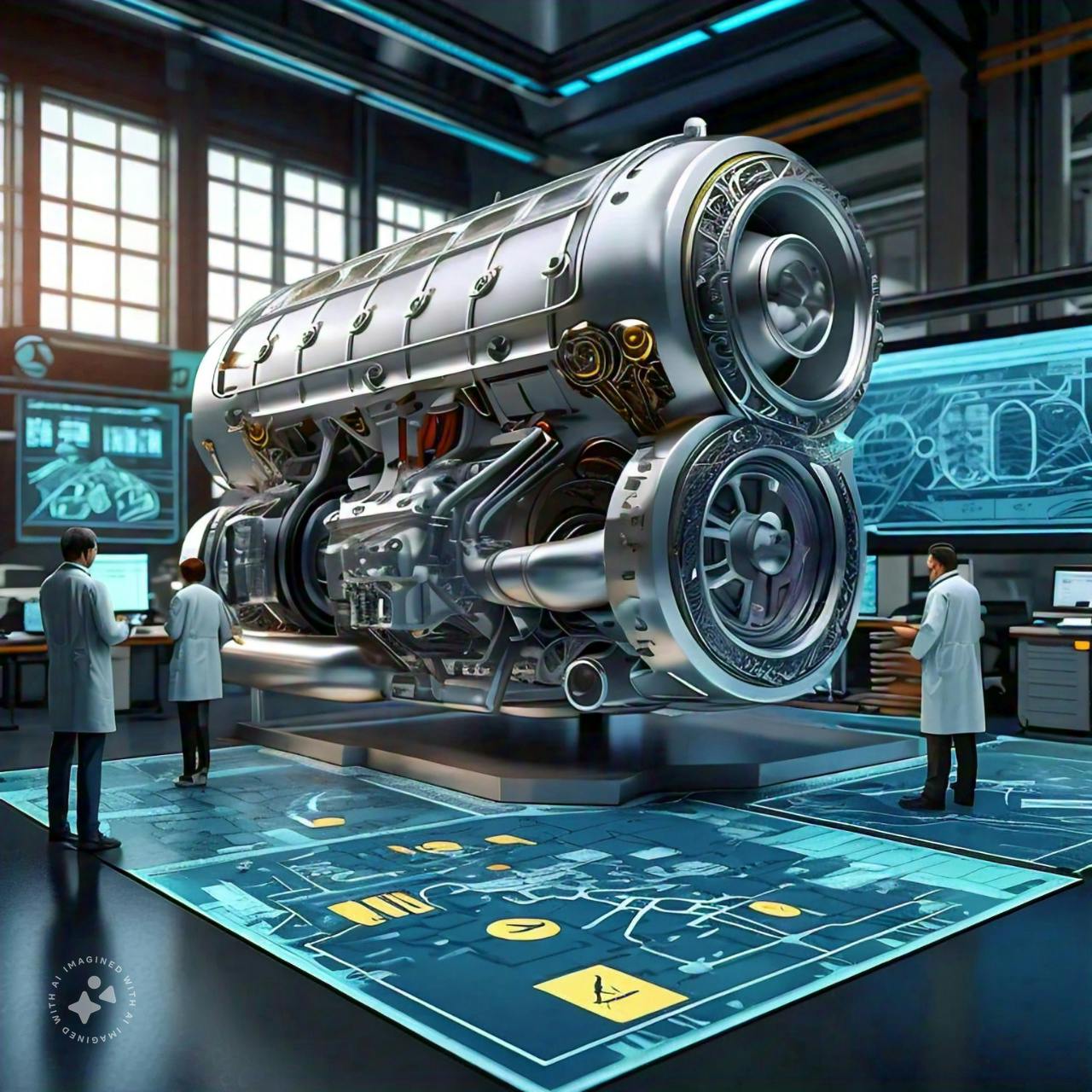
Toyota’s Hydrogen initiatives
Toyota is at the forefront of developing zero-emission vehicles, focusing on hydrogen combustion cars like the Corolla Cross Hydrogen Concept, marking a significant advancement in cleaner energy.
Toyota leverages its expertise in racing to enhance these technologies, using hydrogen sourced from Fukushima in their racing cars. This underscores the potential of the Corolla Cross Hydrogen Concept.
In a recent announcement, Toyota highlighted that their hydrogen cars emit no CO2 during operation and are highly responsive, making them ideal for high-performance vehicles.
Since 1990, Toyota has invested over EUR 11 billion in Europe, with a goal of achieving carbon neutrality by 2040. Europe is expected to become a key market for hydrogen fuel cells by 2030, driven by the European Commission's Environmental Deal.
Toyota plans to establish 700-bar refuelling stations for fuel cell electric vehicles. Additionally, they have made their hydrogen-powered Corolla lighter to improve energy efficiency. During the Fuji 24 Hours Race, the car managed up to 16 laps on a single fill-up, with a target of reaching 20 laps in the near future.
Toyota’s initiatives demonstrate their commitment to advancing alternative energy vehicles. By 2030, hydrogen refuelling stations will be available every 200 km along major roads across Europe, reflecting the growing popularity of hydrogen in cars, thanks to innovations like the Corolla Cross Hydrogen Concept.
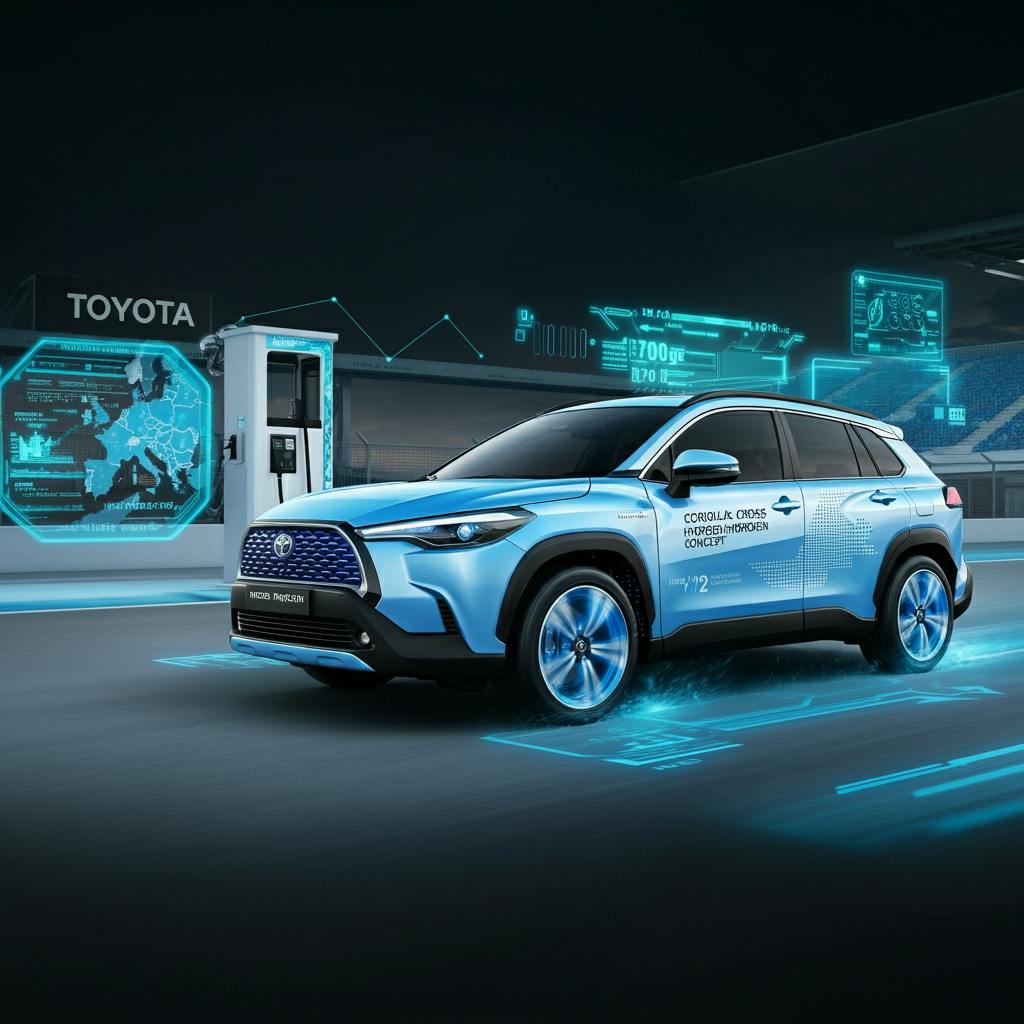
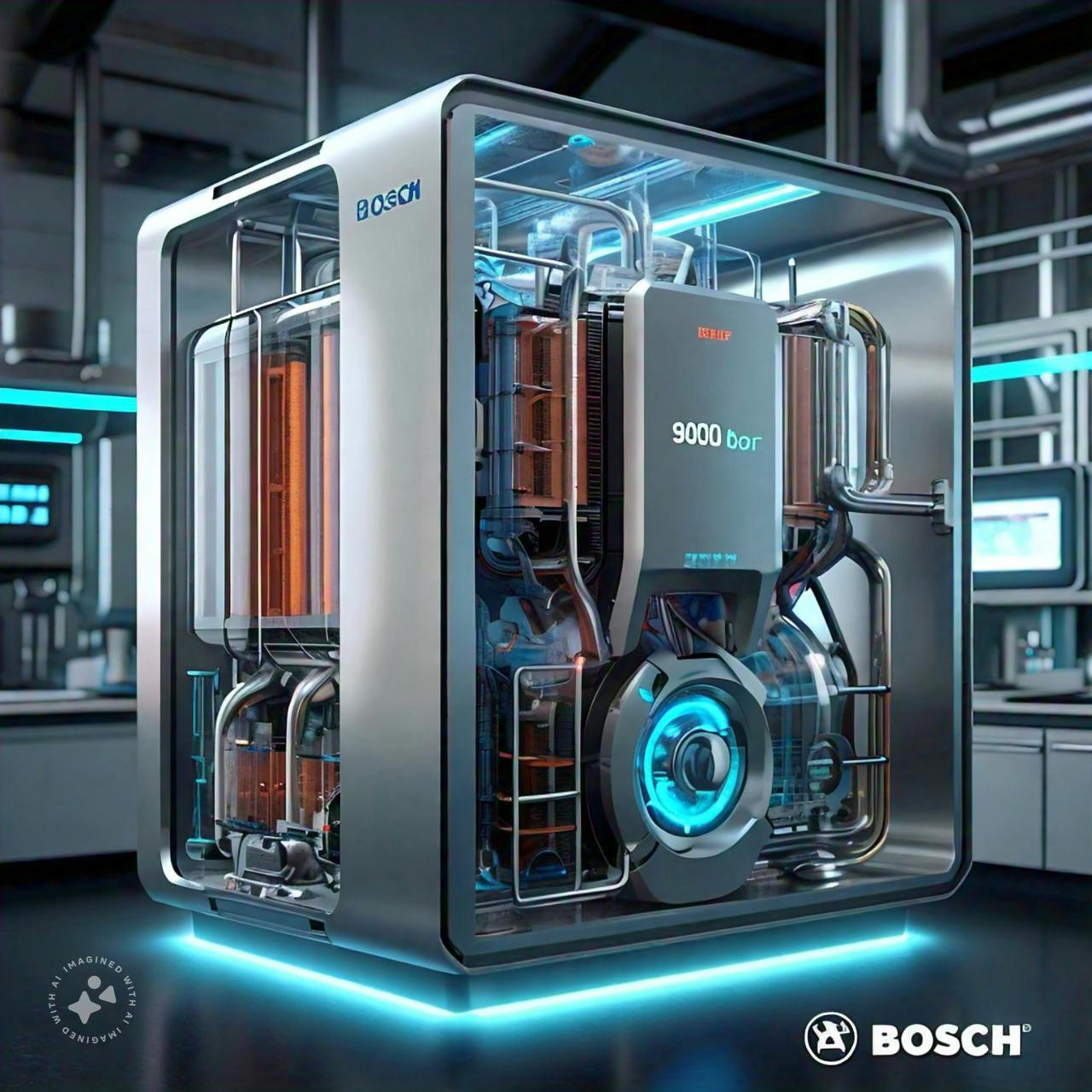
The Bosch Hydrogen Engine
Bosch is a global leader in technology, with ambitions to transform the hydrogen engine market. They are developing innovative solutions for sustainable mobility, including the creation of hydrogen-powered engines and collaborations with key industry partners.
Technological Innovations
Bosch has made significant progress with the PEM electrolyser stack, a technology that converts water into hydrogen and oxygen using electricity. They have also developed highly efficient compressors capable of storing hydrogen at 900 bar for refuelling purposes.
The PEM electrolyser stack, comprising over 100 cells, is set to enter the market soon, demonstrating Bosch's commitment to advancing hydrogen technology.
Collaborations and Strategic Alliances
Bosch is enhancing its sustainable mobility initiatives through strategic partnerships. By working with FirstElement Fuel and Repsol, they are building a robust hydrogen network and conducting research into hydrogen-powered vehicles. These collaborations are crucial in demonstrating the potential impact of hydrogen engines.
Bosch is preparing for a future where hydrogen plays a pivotal role in energy and transport. The company aims to generate $5.5 billion from hydrogen by 2030, with annual investments of $530 million underscoring their commitment to sustainable transport innovation.
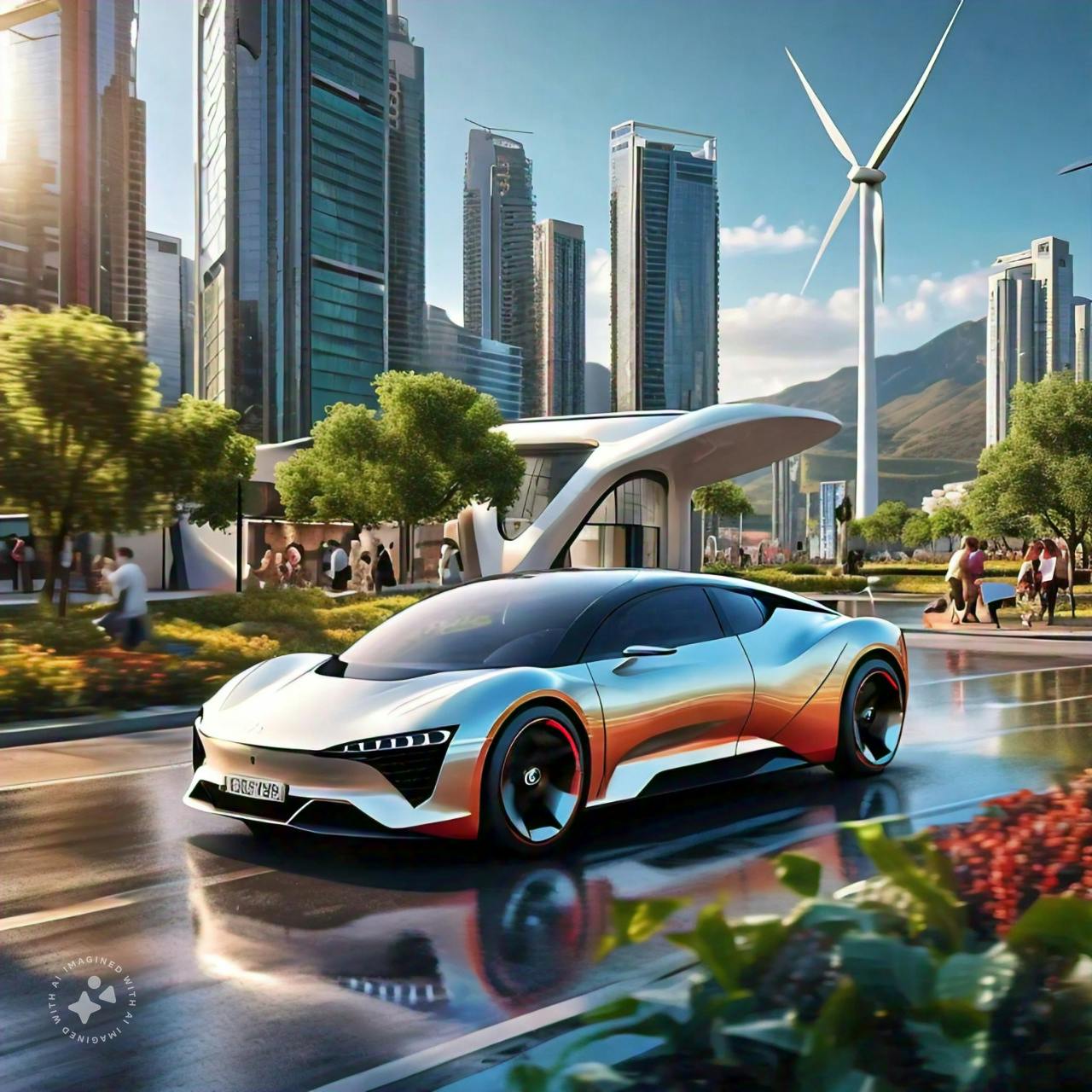
Environmental benefits of Hydrogen Engines
Hydrogen engines represent a significant advancement in addressing environmental concerns within the transport sector. This sector accounts for approximately 30% of U.S. energy consumption and 70% of petroleum usage. By adopting zero-emission technology, air quality can be substantially improved, particularly in urban areas where many residents live amidst high levels of pollution.
The transport sector is a major contributor to greenhouse gases, responsible for about one-third of U.S. carbon dioxide emissions. Hydrogen engines offer a clean alternative, producing only water vapour, which helps to reduce emissions and decrease particulate matter (PM) and sulphur oxides (SOx) emissions.
Renewable energy vehicles, such as hydrogen-powered cars and trucks, have the potential to lessen the U.S.'s dependency on fossil fuels. Currently, only 5% of hydrogen is derived from renewable sources. However, as the cost of electrolysers decreases, the production of hydrogen from renewable sources will become more feasible, facilitating a transition to cleaner technology.
Hydrogen engines also enhance energy accessibility. They enable the production of hydrogen locally, reducing the need for fuel transportation. This enhances energy security and stabilises costs, encouraging greater adoption of alternative energy vehicles.
In summary, hydrogen engines have the potential to significantly reduce the environmental impact of transport. By integrating zero-emission technology and increasing the use of renewable energy vehicles, we can progress towards a more sustainable future.
Case studies and Real-World Applications
Examining case studies on hydrogen engines reveals how testing has led to new solutions in sustainable transport. Companies like Kia, Hyundai, Volvo, and Bosch are at the forefront of this transformation, continuously advancing hydrogen technology.
Kia and Hyundai's Passenger Car
Kia and Hyundai are leading the way with their hydrogen engines, developing vehicles that utilise advanced hydrogen technology. These cars undergo extensive testing to ensure their performance and reliability, marking a significant step towards sustainable transport.
As hydrogen fuel cell technology continues to improve, these vehicles demonstrate how it can be effectively used for everyday travel.
Volvo’s Hydrogen Trucks
Volvo is making a substantial impact with its hydrogen-powered trucks, which are part of the company’s strategy to reduce carbon emissions. These engines have undergone rigorous testing to ensure they perform well in real-world conditions.
The results confirm that these trucks are both reliable and environmentally beneficial, proving that hydrogen engines are a viable option for transport.
Bosch's Sustainable Mobility Solutions
Bosch is a key player in the development of hydrogen engine technology, striving to make transport more sustainable. The company is conducting various tests on hydrogen engines to minimise emissions.
Their studies highlight the effectiveness of this technology in real-world applications, reinforcing its potential role in the future of sustainable transport.
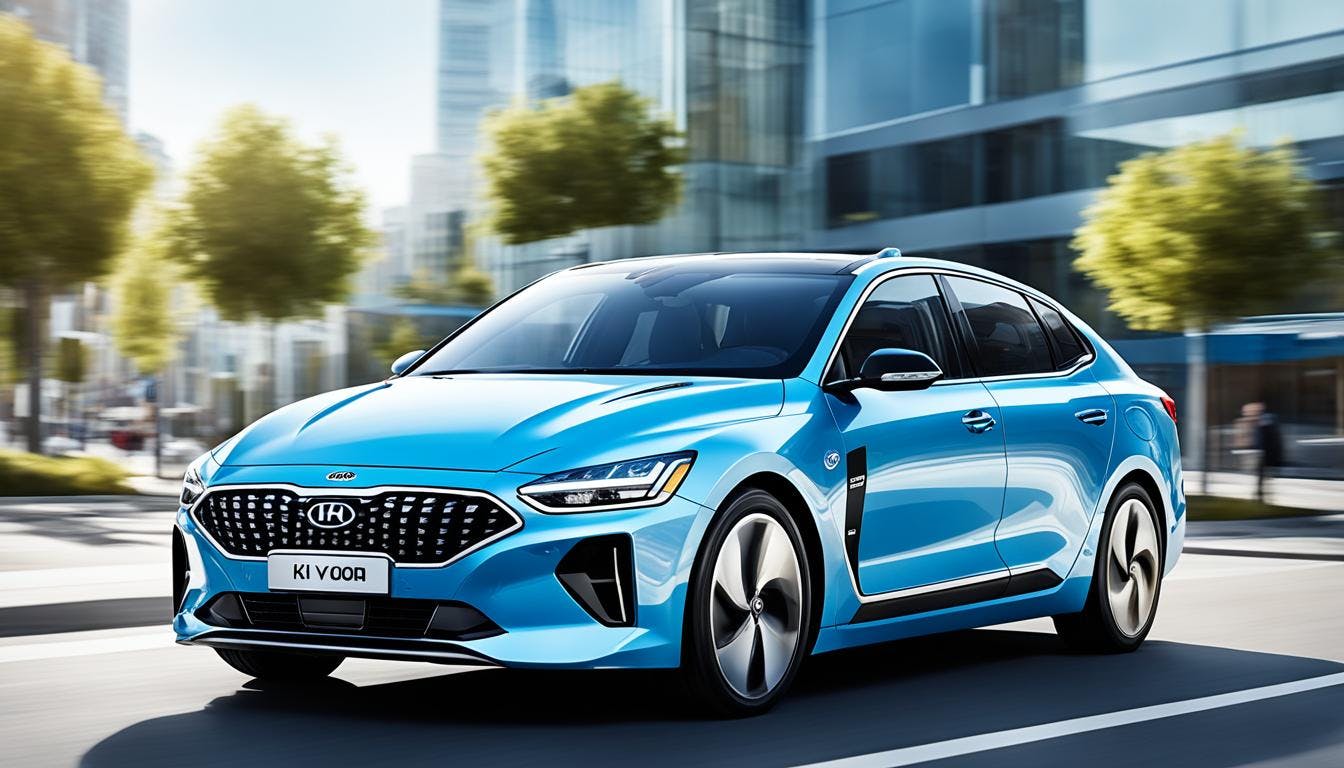
Conclusion
As we conclude our exploration of emerging hydrogen engine technologies, it is evident that they have the potential to revolutionise the way we travel. With over 130 car manufacturers developing these engines, there is a significant momentum behind this technology. Plans to increase production of these engines in 2023 indicate a growing alternative to traditional and electric vehicles.
These engines are anticipated to be durable and cost-effective, potentially surpassing diesel engines in these respects. They may also have lower initial costs compared to fuel cells. While fuel cells are currently more advanced, continued investment and strategic partnerships could shift the landscape. The concentration of patents in Germany, China, and Japan may influence the pace of progress across different regions.
Adopting hydrogen engines could substantially reduce pollution and offer economic benefits. However, the production of hydrogen still generates considerable CO2 emissions. Employing cleaner methods of hydrogen production, such as water electrolysis, could alleviate this issue. The EU’s plans to increase the use of low-carbon hydrogen in trucks by 2030 underscore their confidence in this technology.
As investment in hydrogen research grows, the future of clean transport looks promising. Overcoming technical challenges and fostering collaboration will be essential in making hydrogen engines a central component of sustainable transport. This journey highlights the importance of considering all aspects of future transportation, with hydrogen playing a pivotal role.
FAQ's
Why Hydrogen Combustion?
Hydrogen combustion engines represent a step towards cleaner vehicles. They operate using a similar setup to traditional engines but significantly reduce emissions, making them a compelling choice for advancing towards cleaner transportation solutions.
How do hydrogen combustion engines compare to traditional combustion engines?
These engines offer a driving experience comparable to petrol engines, with similar range and refuelling times. Moreover, they produce substantially less CO2, contributing to the shift towards cleaner transport.
Who are the key players in the hydrogen combustion engine market?
Kia, Hyundai, and Volvo are leading the development of hydrogen engine technology. They are collaborating to enhance these engines, aiming to make them more efficient and environmentally responsible.
What is the difference between hydrogen combustion and hydrogen fuel cells?
Hydrogen combustion engines operate similarly to traditional engines but use hydrogen as fuel. In contrast, fuel cells convert hydrogen into electricity to power electric motors. Hydrogen combustion engines are simpler and more compact, positioning them as a promising option for cleaner transport.
What are Kia and Hyundai's plans for hydrogen engine development?
Kia and Hyundai are collaborating to develop hydrogen engines, with plans to introduce a ready model for vehicles by 2025. This effort underscores South Korea's commitment to advancing cleaner automotive technology.
What are Volvo’s plans for hydrogen trucks?
Volvo intends to begin testing hydrogen-powered trucks by 2026. These trucks are expected to match the performance of diesel trucks while significantly reducing CO2 emissions. Volvo views hydrogen as a key component in the future of commercial transport.
How does biodiesel fit into the hydrogen combustion process?
Biodiesel plays a role in initiating the combustion of hydrogen in engines, as seen in Volvo's hydrogen trucks. This combination supports cleaner combustion and helps meet stringent emission standards.
What is Europe’s role in the growth of the hydrogen engine market?
Europe is at the forefront of clean energy initiatives, making significant investments in hydrogen technology. This focus is driving global interest in clean technology and hydrogen engines.
What challenges do hydrogen engine technologies face?
Hydrogen engines face challenges such as improving fuel injection systems and developing engine components that are compatible with hydrogen. Scaling up production is another hurdle. Strong public and political support is crucial for their widespread adoption.
What are Toyota's initiatives in hydrogen technology?
Toyota is exploring both hydrogen fuel cells and combustion engines. Their projects, including the Mirai and Corolla Cross Hydrogen Concept, demonstrate their commitment to hydrogen technology and sustainable mobility.
What are Bosch’s contributions to hydrogen engine technology?
Bosch is preparing to launch a hydrogen engine by 2024, focusing on sustainable transport solutions. They are collaborating with companies like Repsol in Spain to accelerate the adoption of hydrogen engines within the industry.
What are the environmental benefits of hydrogen engines?
Hydrogen engines have the potential to significantly reduce greenhouse gas emissions compared to traditional engines. When combined with renewable resources, they could become a zero-emission option, transforming the transport industry.
What are some real-world applications of hydrogen engines?
Hydrogen-powered vehicles from Kia and Hyundai, along with hydrogen trucks from Volvo, will soon be on the market. These examples illustrate the potential of hydrogen engines to reshape the transport sector, while Bosch’s efforts highlight the practical applications of hydrogen technology.
17 South Street
Auckland 1010
New Zealand
info@carbonclick.com- -
- X
Subscribe now to stay up to date with CarbonClick, carbon offsetting and climate action.
By signing up you agree to our Privacy Policy.


